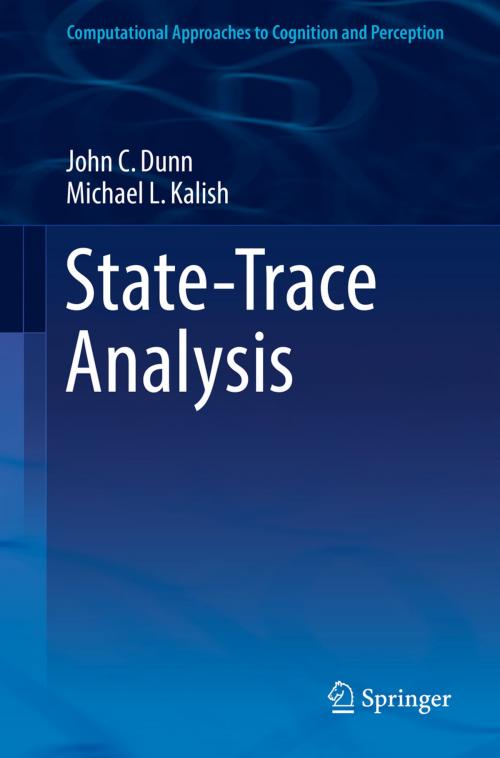| Author: | John C. Dunn, Michael L. Kalish | ISBN: | 9783319731292 |
| Publisher: | Springer International Publishing | Publication: | February 8, 2018 |
| Imprint: | Springer | Language: | English |
| Author: | John C. Dunn, Michael L. Kalish |
| ISBN: | 9783319731292 |
| Publisher: | Springer International Publishing |
| Publication: | February 8, 2018 |
| Imprint: | Springer |
| Language: | English |
This book provides an introduction to the theory, method, and practice of State-Trace Analysis (STA), and includes a detailed tutorial on the statistical analysis of state-trace designs. The book offers instructions on how to perform state-trace analysis using the authors' own publicly-available software in both Matlab and R.
The book begins by discussing the general framework for thinking about the relationships between independent variables, latent variables, and dependent variables. Subsequent chapters provide a software package that can be used to fit state-trace models as well as additional designs and examples. The book concludes with a discussion on potential extensions of STA and additional aspects of its application.
State-Trace Analysis will be of interest to researchers and graduate students working in experimental, applied, and cognitive psychology.
This book provides an introduction to the theory, method, and practice of State-Trace Analysis (STA), and includes a detailed tutorial on the statistical analysis of state-trace designs. The book offers instructions on how to perform state-trace analysis using the authors' own publicly-available software in both Matlab and R.
The book begins by discussing the general framework for thinking about the relationships between independent variables, latent variables, and dependent variables. Subsequent chapters provide a software package that can be used to fit state-trace models as well as additional designs and examples. The book concludes with a discussion on potential extensions of STA and additional aspects of its application.
State-Trace Analysis will be of interest to researchers and graduate students working in experimental, applied, and cognitive psychology.















